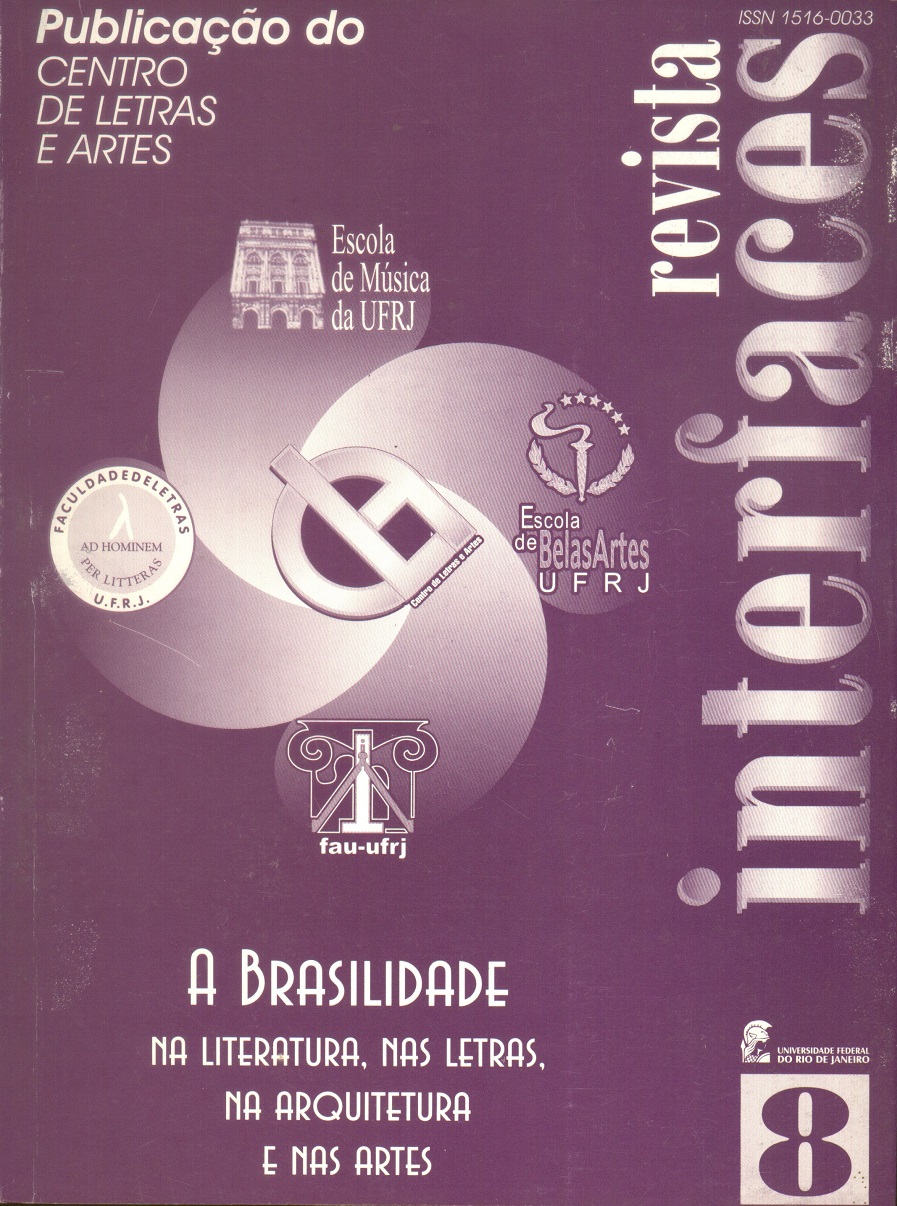Bolero: Uma estética do espetáculo
Palavras-chave:
Livro, Crítica socialResumo
This article analyses Bolero, Victor Giudice’s first novel. Its aim is to show how thisBrazilian author, who has also been critic of music and literature, develops along his
fiction a poetics of his own, which consists of his ideas about art in general and
literature in particular. Its fragmented structure tells a lot about what can be said to
be the author’s conception towards the critical function of art. In this way, the novel
is a perfect fulfillment of its author’s project of developing a critical perspective in
relation to an anti-democratical society through an artistic language. In order to
demonstrate the presence of this poetics in this novel I’ll analyse some fragments in
which Giudice refers to music, poetry, pantomime, drama, painting, cinema e even
to carnival as a way of implementing his social critics through a language that is
essentially artistical.
Downloads
Não há dados estatísticos.
Referências
ÂNGELO, I. (1978) A festa. São Paulo: Summus Editorial.
ASSIS, M. (1978) Esaú e Jacó. Obras Selecionadas, v. 4. São Paulo: Egéria.
CANDIDO, A. (1995) “Uma palavra instável.” IN: Vários escritos. São Paulo: Duas Cidades.
GIUDICE, V. (1979) Os banheiros. Rio de Janeiro: Codecri.
______. Bolero. (1985) Rio de Janeiro: Rocco.
______. Necrológio. (1972) Rio de Janeiro: O cruzeiro.
SCHWARTZ, J. (1974) “Obra muriliana: do fantástico como máscara”. IN: O convidado. São Paulo: Quiron.
SÜSSEKIND, F. (1985) Literatura e vida literária. Rio de Janeiro: Jorge Zahar.
Downloads
Publicado
17.02.2020
Edição
Seção
Artigos
Licença

Este trabalho está licenciado sob uma licença Creative Commons Attribution 4.0 International License. O envio dos trabalhos implica a cessão sem ônus dos direitos de publicação, inclusive em versão eletrônica online. Todos os diretos provenientes da venda da revista ficam cedidos à Revista InterFACES. A republicação dos trabalhos deve mencionar a publicação original em Revista InterFACES.


